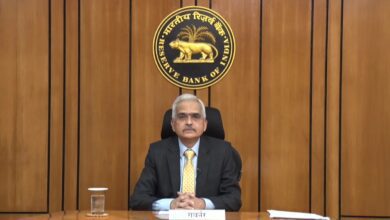Elon Musk’s visit to India: Tesla Advances The Electric Vehicle Market Before Elections
Everybody’s eyes are on Prime Minister Narendra Modi’s meeting with internet mogul Elon Musk later this month as India prepares for the 2024 Lok Sabha elections. The meeting highlights not just Modi’s intentions to draw in foreign investments, but also India’s growing attraction as a top market for international companies, particularly in the electric vehicle (EV) industry.

According to rumors circulating in the media, Musk may announce investment plans in India’s electric car industry during his 48-hour visit. Elon Musk’s company, Tesla, has been considering entering the Indian market for some time. This is despite the government’s adamant “Make in India” policy and ongoing lobbying for tax breaks.
The recent announcement of new electric vehicle (EV) legislation by India makes things much more enticing for foreign companies like Tesla. Significant incentives are provided by the program, such as reduced import duties for businesses that spend $500 million or more in manufacturing facilities. The purpose of these incentives is to encourage investment in India’s automotive sector, in line with the government’s goal of having 30% of all cars sold be electric vehicles by 2030.
Musk’s shift to India comes at a crucial time, after challenges in China despite Tesla’s early success and incentives there. Despite intense local competition and regulatory obstacles, India stands out as a desirable substitute with bright development potential.
In a statement to MoneyControl, an executive with experience in providing advice on worldwide investments in India highlighted the strategic importance of Musk’s visit by noting that India is “the one market” where his endeavors are likely to succeed.
For Musk, India is an unexplored yet very promising market. Musk’s involvement is a major victory for India in its efforts to strengthen its manufacturing base and increase its market share in the global car industry.
India has been working hard to grow its manufacturing sector for a long time, hoping to follow in the footsteps of its neighboring countries, Vietnam and Bangladesh. Though it will only make up around 13% of GDP as of 2022—much less than China’s 28%—India’s manufacturing industry is very promising.
The Indian government has launched a number of efforts, such as production-linked incentive programs across 14 industries, to spur development in this industry. With the automobile industry accounting for around 30% of India’s manufacturing output, it is hoped that Tesla’s arrival into the Indian market could spark a revolution similar to what Maruti accomplished with internal combustion engine cars.
Furthermore, worries about artificial intelligence’s possible impact on conventional labor sectors, notably in India’s BPO industry, are growing. India must thus foster alternative employment ecosystems and take advantage of international misgivings about China.






